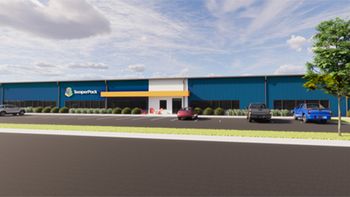
- Pharmaceutical Commerce - April 2009
Continental Cargo approves use of AcuTemp container for cold chain shipping
AcuTemp unit remains the only FAA-approved container for domestic US use
Continental Airlines Cargo has made a “selection” of the AcuTemp RKN container for use on its cargo jets, says CSafe LLC (Dayton, OH) in a recent announcement. CSafe is the marketing j.v. between AcuTemp Thermal Systems (Dayton, OH) and AmSafe, Inc. (Phoenix), the two companies that developed the RKN unit. “Our selection by Continental reinforces CSafe’s position as a premier player in the active temperature marketplace and expands customers’ options for temperature critical transportation,” said Steve Boyd, CSafe director of business development.
But the real story here might be Continental’s aggressive positioning to capture more of the cold chain market. Last fall, Continental became the first cargo air carrier to be
Envirotainer’s and CSafe’s containers are unit-load devices that contain a pallet-sized (more or less) shipment of pharmaceuticals. Both can be “active,” meaning that they have onboard refrigerators (or, if necessary, heaters) that can be powered from batteries or plugged in. (Similar “passive” devices use dry ice or refrigerated phase-change material to maintain temperature). CSafe’s unit is FAA-rated; Envirotainer’s, although on the market longer, await FAA approval.
Articles in this issue
over 16 years ago
Returns Process Proves Presence of Counterfeits in US Supply Chainover 16 years ago
ClearOrbit Rolls Up More Supply Chain IT Processesover 16 years ago
Automating the Business-Development Processover 16 years ago
SAP and Teradata Partner on Data Warehousingover 16 years ago
Supply Chain Planning Takes on An International Flavorover 16 years ago
Global Pharma Sales Growth Will Flatten to 2.5-3.5% in 2009over 16 years ago
Riding the Biotech Financing Rollercoasterover 16 years ago
Rx-to-OTC Switch Market Will Double Its Recent Growth Rateover 16 years ago
Drug Wholesalers and the Generic Price WarNewsletter
Stay ahead in the life sciences industry with Pharmaceutical Commerce, the latest news, trends, and strategies in drug distribution, commercialization, and market access.




